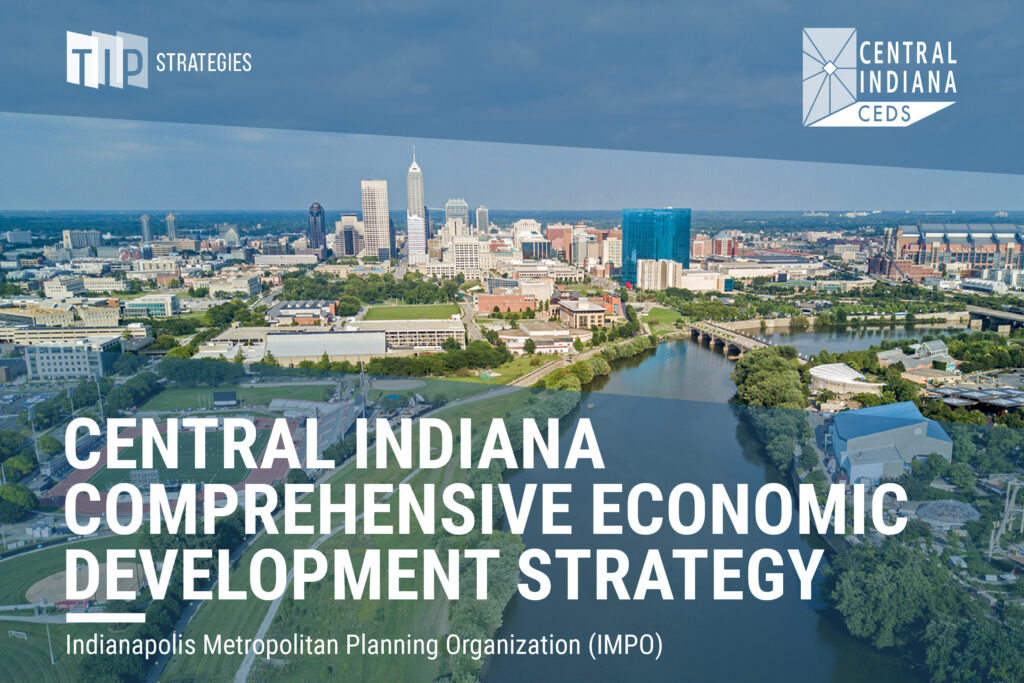The third installment of TIP’s CEDS series features ways to make equity a foundational component of the planning process. Given the importance of the CEDS to regional economic development, it is crucial that the process be as inclusive as possible to ensure a quality strategic plan.
Since April 2021, when the US Economic Development Administration (EDA) elevated it as a primary investment priority, equity has been central to the comprehensive economic development strategy (CEDS). The recent release of updated content guidelines further affirmed equity’s pivotal role in driving regional competitiveness. The CEDS process should yield carefully crafted strategies and targeted approaches that pave the way for equal access to economic opportunities, particularly for populations that have been marginalized based on factors such as race, gender, socioeconomic status, and geography. To ensure that the final document fully aligns with EDA investment priorities, regions must proactively incorporate equity throughout the planning process.
There are a number of ways to make equity an integral part of the CEDS process, beginning with inclusive outreach. As detailed in the previous post in this series, the broadest possible constituency must be involved to help drive equitable and inclusive economic development. Forming a representative steering committee and engaging diverse stakeholders helps generate community support, gather meaningful insights, create consensus around goals and priorities for future growth, and build momentum for implementation.
Research provides another avenue for creating an equitable CEDS. The identification of national best practices for advancing economic equity is one example. The use case studies can inform plan recommendations by identifying reproducible components of an approach and by delineating how regional partners collaborated to implement a program or initiative. Gathering comprehensive baseline data is another research task where an inclusive approach can make a difference. When disaggregated by race, ethnicity, geography, and other relevant categories, quantitative data will frequently call attention to trends and opportunities for equitable growth that might otherwise have been overlooked.
TIP’s recent work for the Indianapolis Metropolitan Planning Organization (IMPO) illustrates the power of disaggregated data. During the preparation of the 2022 Central Indiana CEDS, TIP gathered commuting patterns for the IMPO’s eight-county region. Breaking down this data by race, occupation, and county highlighted regional equity concerns . For example, the data revealed that, despite Hamilton County being predominantly White, most service workers that commute into the county are Black and Hispanic. By disaggregating the data, the CEDS analysis confirmed that the combination of low wages and a high cost of living means these populations cannot afford to live where they work. This finding, coupled with an occupation-based analysis of risks to earnings and employment by race and ethnicity resulting from the COVID-19 pandemic, helped shape recommendations around transportation and housing under the plan’s placemaking goal. Ensuring that new housing developments in underserved communities are better connected with job centers through the expansion of transportation options like shared mobility services and non-motorized routes is an example.
An equity focused CEDS equips a region to pursue its vision for future economic growth and shared prosperity. Fundamentally, the EDA is more likely to provide financial support and technical assistance for the implementation of strategies that increase economic prospects across all communities. Prioritizing equity and inclusion also cultivates the stakeholder trust and buy-in necessary to successfully complete and implement a CEDS. Finally, there is a strong correlation between economic equity and resilience. Sharing economic prosperity more broadly better positions a region to withstand and recover from significant disruptions. With equity at its center, the CEDS is a future-focused roadmap for regional competitiveness and resiliency.
Former TIP consultant Katrina Parkey, CWDP, contributed to the research and writing of this post.



